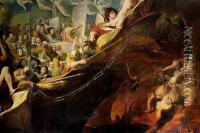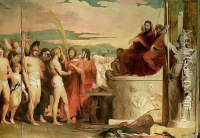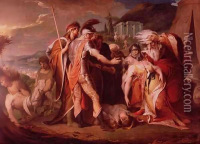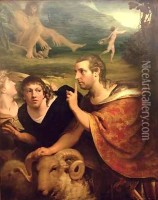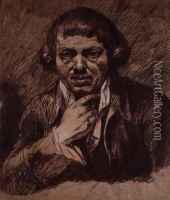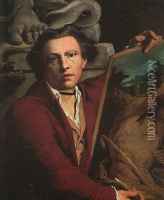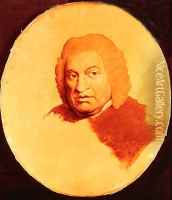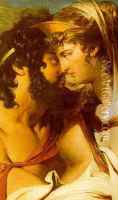James Barry Paintings
James Barry was an Irish painter, born in Cork in 1741. He is best known for his grand historical paintings, which often contain strong messages about the importance of virtue and the dangers of vice. Barry's early education was in the classics and philosophy, which influenced his later work. He moved to Dublin in 1757 to study at the Royal Dublin Society, where he developed an interest in the arts.
In 1765, Barry moved to London, and eventually, he traveled to Paris and Rome to further his studies. His time in Italy, particularly in studying the great Renaissance masters, had a profound impact on his artistic development. Barry was deeply inspired by the works of Raphael and Michelangelo, and this is evident in his own ambitious compositions and heroic figures.
Barry's most significant work is a series of six paintings, entitled 'The Progress of Human Knowledge and Culture,' which he completed for the Great Room of the Royal Society of Arts in London. This monumental project occupied him for much of his career from 1777 to 1783. The series showcases his belief in the potential for human progress through education and the arts.
Despite his talent, Barry was a contentious figure, often involved in disputes with patrons and the art establishment. His irascible nature and strong opinions did not win him many friends, and he struggled financially throughout his life. He was elected a member of the Royal Academy in 1773, but his relationship with the institution was fraught with conflict, and he was eventually expelled in 1799.
Barry's later years were marked by poverty and declining health. He continued to paint, but his works from this period were often seen as too didactic or obscure. Barry died in London in 1806, largely forgotten by the art world. His legacy, however, has been reassessed over time, and he is now recognized for his contributions to British art, particularly his ambitious historical paintings that reflect his deep intellectual engagement with the themes of history, culture, and society.







